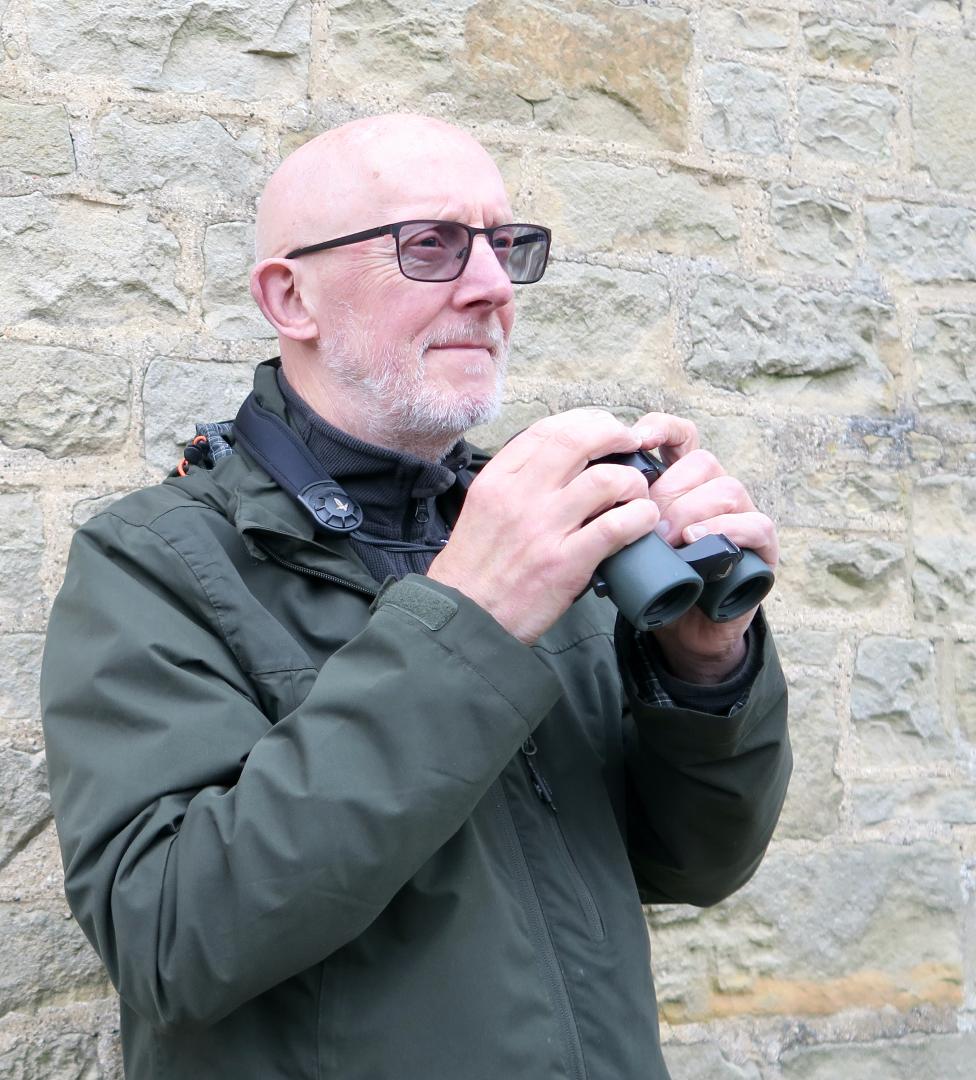Sunday was National Dawn Chorus Day when UK birdsong reaches its crescendo. Barnard Castle birdwatcher Andrew Lapworth explains what to listen out for…
The Royal Society for the Protection of Birds describes the dawn chorus as “the symphony of song performed by birds looking for love and to defend their patch” . Sunday, May 5, is National Dawn Chorus Day when the avian world’s combined voice is probably at its loudest.
Andrew Lapworth leads Teesdale’s u3a birdwatching group on their monthly field meetings, helping members find and identify birds by their songs or calls.
He said: “We can all recognise the curlew’s calls, but what about nuthatches in Flatts Wood? If you know the song or call, you’ve a good chance of finding the bird.”
Andrew has been birdwatching most of his adult life. As a child he was inspired by I-spy books, Brooke-Bond cards, (with illustrations by Charles Tunnicliffe) and the little Observer’s Book of British Birds. For his 11th birthday his grandma bought him the Popular Handbook of British Birds, costing 48 shillings. It was probably the most expensive book in the family home in Leicester.
Birdwatching evening classes in London in the 1970s reignited his interest. His tutor was Ron Kettle who was the first person he had met who identified birds just by their sound. Andrew joined local birdwatching groups which organised regular field meetings all over the UK. For nearly 20 years he was chairman of the Ashford Birdwatching Club, Kent. From a holiday home in Thorngate since 2011, Andrew and his wife got to know and love Teesdale. They moved permanently to Barnard Castle in 2021.
“Birds are everywhere and anyone with an observant eye and curiosity can enjoy seeing them,” he said.
How to start birdwatching? Many people begin by feeding and watching birds in their gardens or backyards. To develop the hobby, Andrew recommends investing in a pair of binoculars and taking them on a walk along the river or in the fields.
“You will find and see birds in different habitats. Along the Tees and becks there are river birds such as dippers, goosanders, grey wagtails, and occasionally the splendid kingfisher.
“Some of our dale woods have scarce birds, such as pied flycatchers and redstarts. On the moors, in addition to the ubiquitous red grouse, we have rare black grouse, and in spring and summer, ring ouzels and breeding waders, such as curlews, lapwings, redshanks, oystercatchers and snipe. And visit our coasts to discover seabirds; we have the Farne Islands not too far away if you want to see puffins up close,” he added.
Learning bird songs and calls needs practice and patience. It’s best to start in January and February learning the songs of common garden birds such as robins, wrens and blackbirds. There are birdsong apps, CDs, or podcasts like BBC’s Tweet of the Day to help remember songs. Andrew also recommends the Merlin app for smartphones which identifies birds by sound. He said: “It’s pretty good but not 100 per cent accurate every time.”
As spring progresses, the chorus of birdsong builds. Resident birds are joined by summer migrants, such as chiffchaffs, blackcaps and willow warblers, each with its own distinctive song.
Why do birds sing so early in the morning when it’s still dark?
“They sing to announce their presence and their territory,” said Andrew. “Many song birds are insect eaters and can’t find their food in the dim light of early morning. Singing in broad daylight risks giving away their location to predators such as sparrowhawks. So it makes sense to use the early twilight hours for singing. Also, the air is usually still, and birdsong can carry much further at dawn.”
If you want to hear the dawn chorus at its best, Andrew recommends choosing a dry and still morning, set your alarm so that you can be out just before dawn and dress warmly against the cold. Woodlands, away from noisy becks and the river, offer the richest variety. Robins and blackbirds are often the first songsters when it’s still dark. The chorus peaks for about 30 minutes before and after sunrise, tailing off as it gets lighter.
“Birdwatching has been a wonderful hobby for me. Over the past 30 years, my wife and I have travelled widely, often in search of, and photographing, birds, and other wildlife. After Britain, my favourite birding areas are the neotropic zones across central and South America. But here in the UK, our dawn chorus is special. Each spring we have a wonderful wildlife spectacle to experience and enjoy. And if you can’t get outside to hear it, you can always just enjoy the experience from the comfort of your own home: simply wake up early and open the window.”






